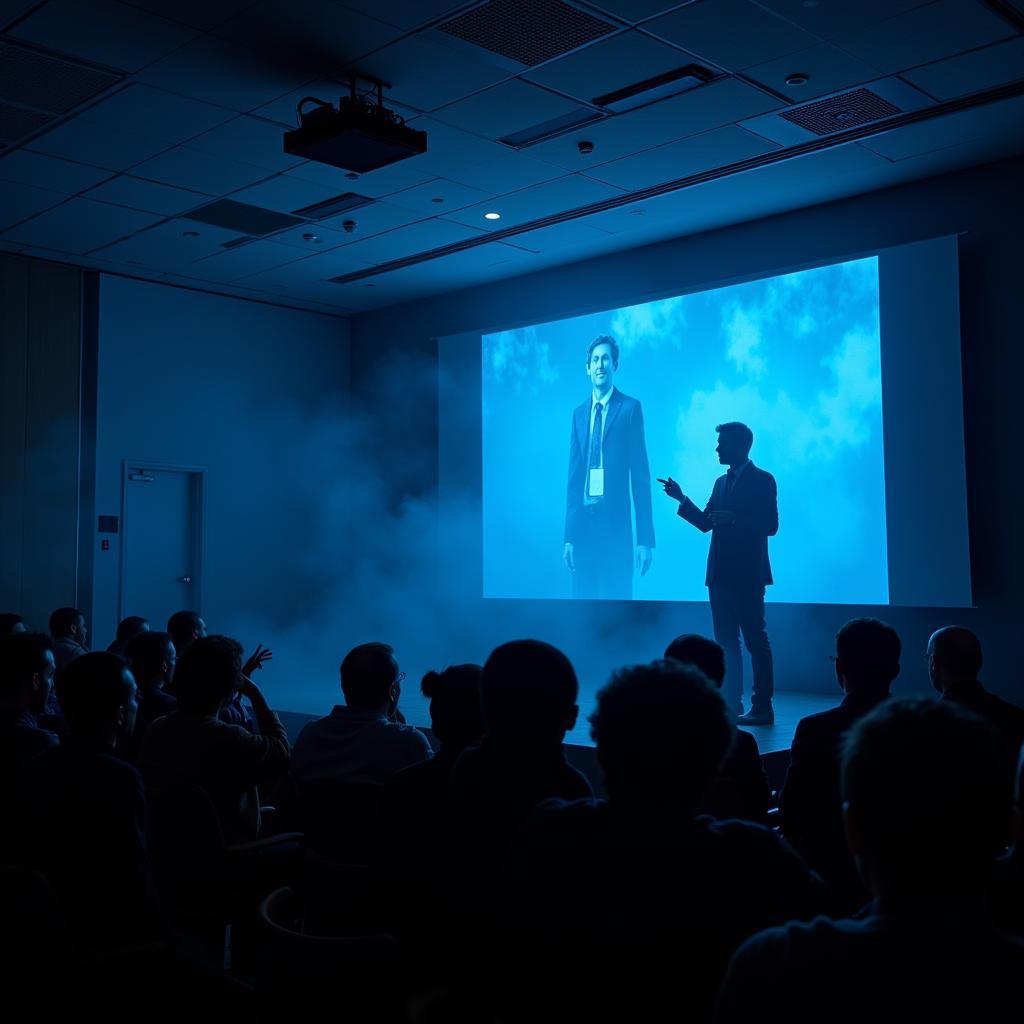The world of paranormal research, while shrouded in mystery and often met with skepticism, offers a unique and compelling area of study for the intellectually curious Graduate Student Researcher. This exploration into the unknown, however, requires a careful blend of academic rigor and an openness to unconventional lines of inquiry.
Embracing the Unknown: Graduate Studies in Paranormal Research
For those drawn to the unexplained, pursuing graduate studies in fields tangential to paranormal research can be incredibly rewarding. While dedicated “Paranormal Studies” programs are rare, disciplines like anthropology, folklore, psychology, and religious studies offer frameworks for investigating phenomena often categorized as paranormal.
 Graduate student researcher engrossed in ancient texts.
Graduate student researcher engrossed in ancient texts.
Essential Skills for Aspiring Paranormal Investigators
A successful graduate student researcher in this field requires a specific set of skills:
- Critical Thinking: Discernment and objectivity are crucial when evaluating anecdotal accounts, historical texts, or potential evidence.
- Research Methodology: A strong foundation in research methods, both qualitative and quantitative, is essential for designing experiments, collecting data, and analyzing findings.
- Interdisciplinary Approach: The paranormal often intersects with various fields. The ability to synthesize knowledge from different disciplines enriches understanding and analysis.
- Open-Mindedness: A willingness to consider alternative explanations and challenge preconceived notions is key.
Unveiling the Truth: Research Avenues in the Paranormal
Graduate student researchers can explore a multitude of research avenues:
- Historical Analysis: Investigating historical accounts of paranormal events, folklore, and mythology through a critical lens can reveal cultural influences and potential explanations.
- Psychological Studies: Exploring the psychological and sociological factors that contribute to belief in the paranormal, examining phenomena like psychic abilities or hauntings.
- Field Research: Conducting investigations of allegedly haunted locations or working with individuals claiming paranormal experiences, utilizing tools and techniques for documentation and analysis.
Funding Your Paranormal Research Journey
Funding opportunities specifically geared towards paranormal research are limited. However, graduate student researchers can seek out grants and fellowships from organizations interested in related fields:
- The National Science Foundation (NSF): While the NSF primarily focuses on traditional scientific research, some programs may support projects exploring the psychological or sociological aspects of paranormal belief. The graduate research fellowship nsf offers funding for innovative research across various disciplines.
- Private Foundations: Numerous private foundations support research in areas like consciousness studies, parapsychology, and anomalous phenomena.
A Career Beyond the Veil: Career Paths for Paranormal Researchers
While a career solely focused on paranormal research can be challenging, the skills acquired during graduate studies are transferable to various fields:
- Academia: Applying research skills in related fields like sociology, religious studies, or folklore, potentially focusing on the cultural impact of paranormal beliefs.
- Writing and Journalism: Sharing research findings and insights through writing books, articles, or documentaries, contributing to the understanding and discussion of the paranormal.
- Consulting: Providing expertise to individuals or groups interested in paranormal investigation or seeking explanations for unusual experiences.
 A paranormal researcher delivers a presentation at a conference.
A paranormal researcher delivers a presentation at a conference.
Conclusion: Embracing the Challenge of Paranormal Research
For the graduate student researcher drawn to the enigmatic realm of the paranormal, a fulfilling and impactful research journey awaits. By approaching this field with a critical yet open mind, embracing rigorous research methodologies, and leveraging interdisciplinary insights, these aspiring investigators can contribute to our understanding of the unknown and its influence on human experience.
FAQs
1. Are there any accredited universities offering degrees specifically in Paranormal Studies?
While some institutions may offer courses or specialized certificates, dedicated degree programs solely focused on Paranormal Studies are rare. It’s more common to find relevant research opportunities within established disciplines like anthropology, folklore, or psychology.
2. Is it possible to receive funding for research projects related to the paranormal?
Funding for paranormal research can be competitive. However, some private foundations and organizations dedicated to exploring consciousness, parapsychology, and unexplained phenomena may offer grants. Explore options like the Scripps summer undergraduate research fellowship.
3. What are some ethical considerations for researchers in this field?
Respect for individuals sharing their experiences, sensitivity to cultural beliefs, and maintaining objectivity are crucial.
4. What are some reputable resources for students interested in paranormal research?
Explore academic journals like the Journal of Parapsychology, reputable organizations like the Society for Psychical Research, and consider attending undergraduate research conferences 2024 to network with other researchers.
5. What are some career options beyond academia for those interested in the paranormal?
Writing, journalism, archival research, museum curation (folklore, history), and consulting are all possibilities.
If you have any questions about Paranormal Research or need help with a case, please feel free to contact us.
Contact us:
Phone: 0904826292
Email: research@gmail.com
Address: No. 31, Alley 142/7, P. Phú Viên, Bồ Đề, Long Biên, Hà Nội, Việt Nam
Our team is available 24/7 to assist you.